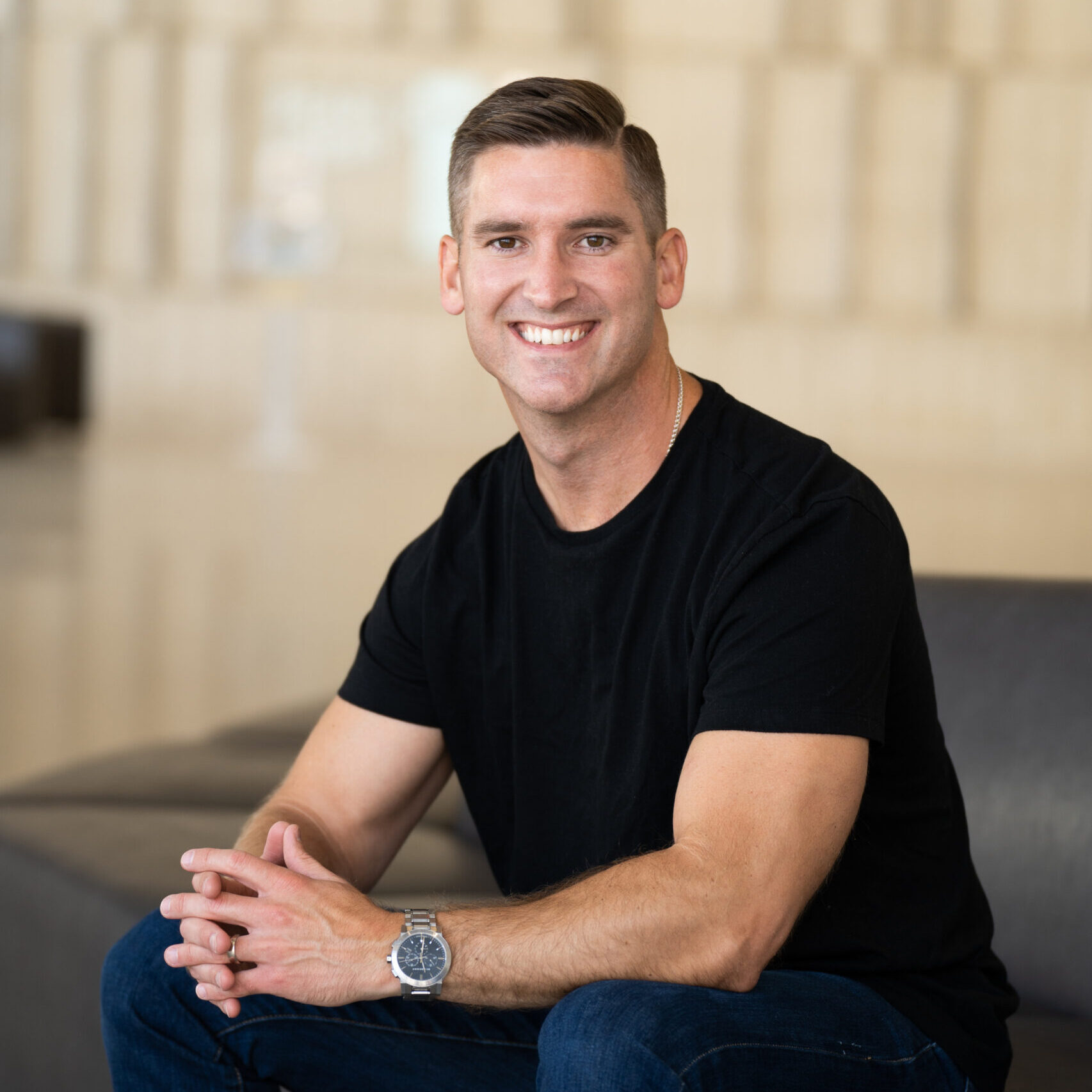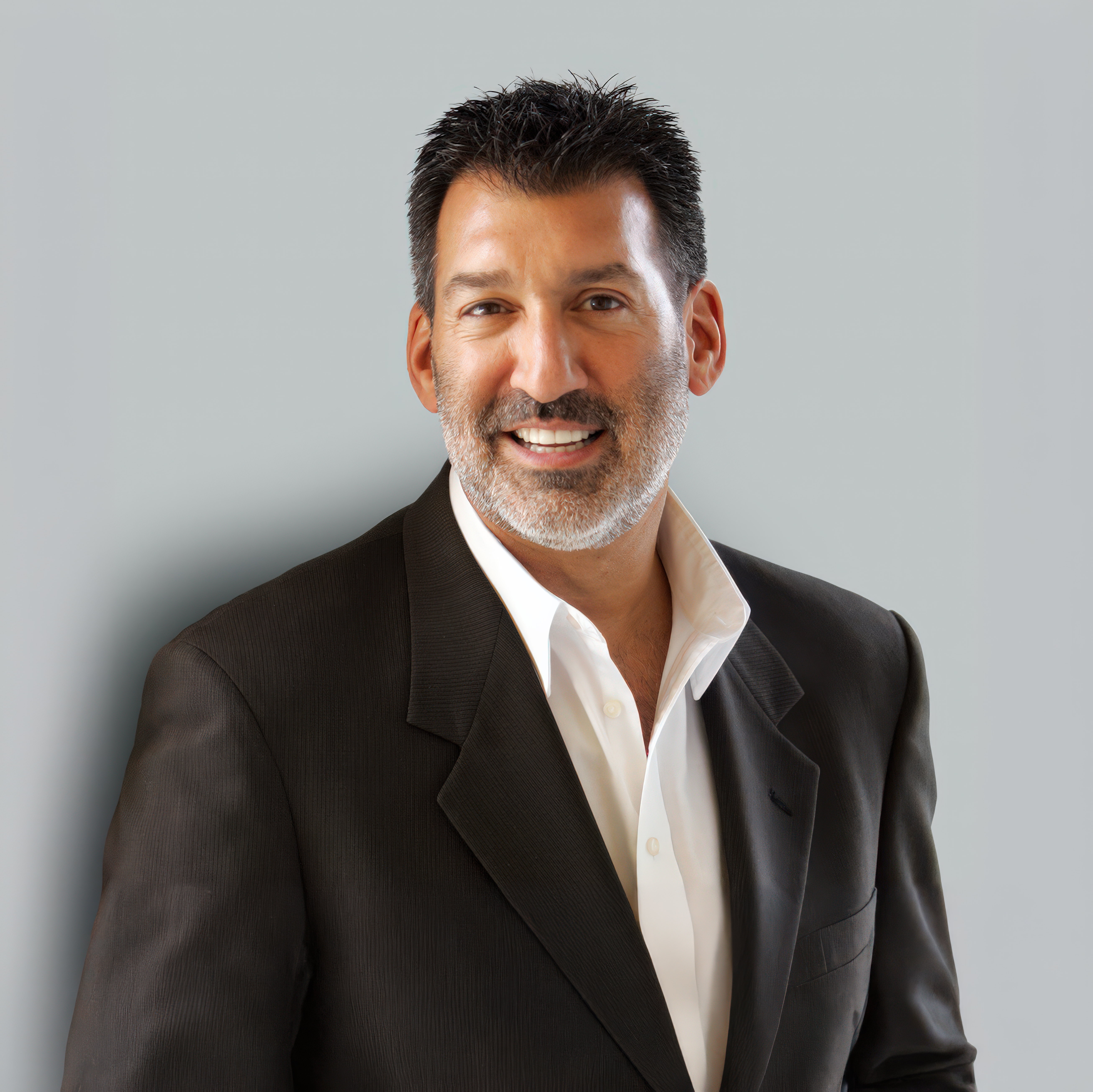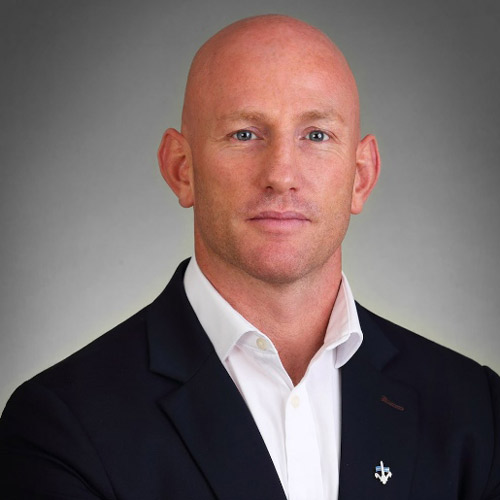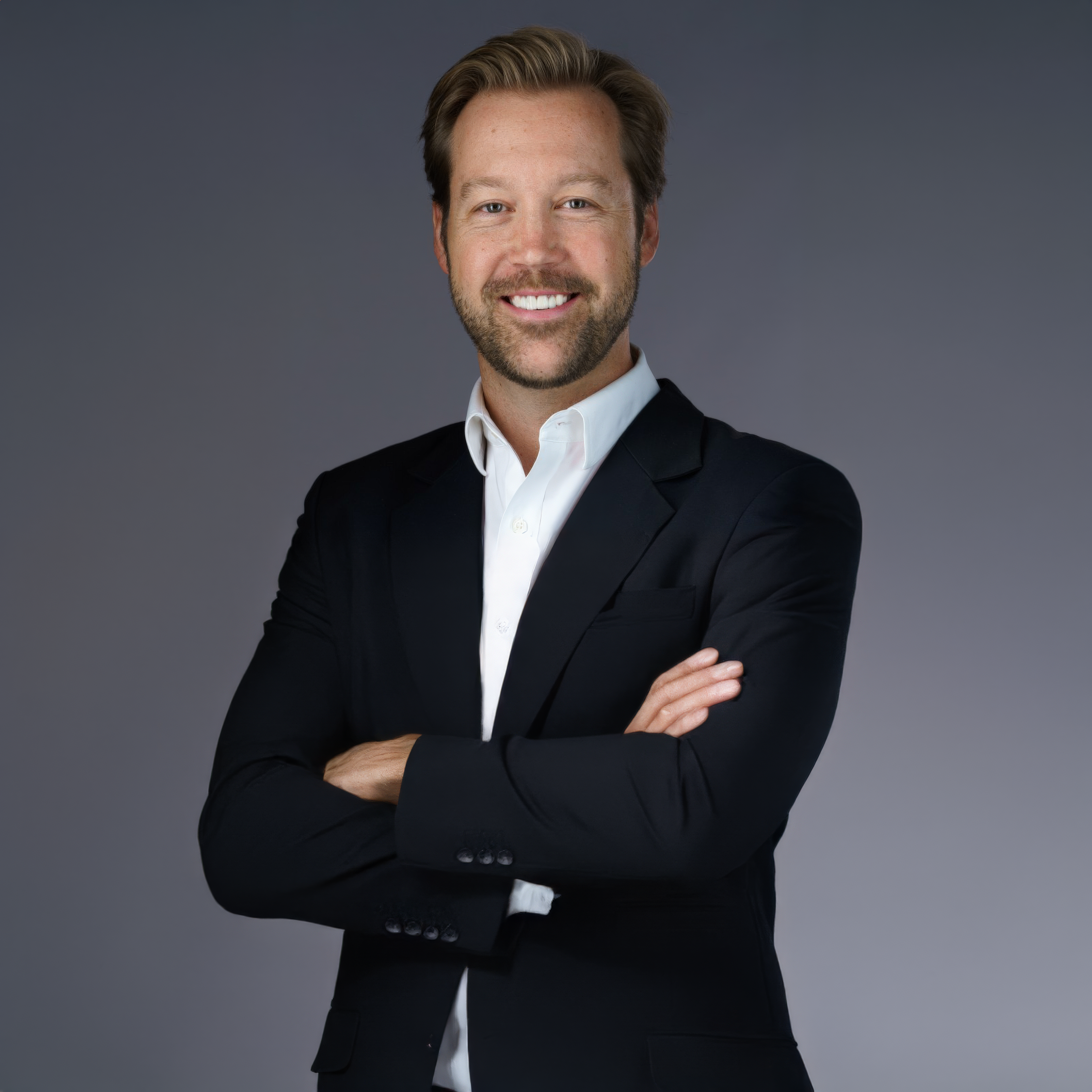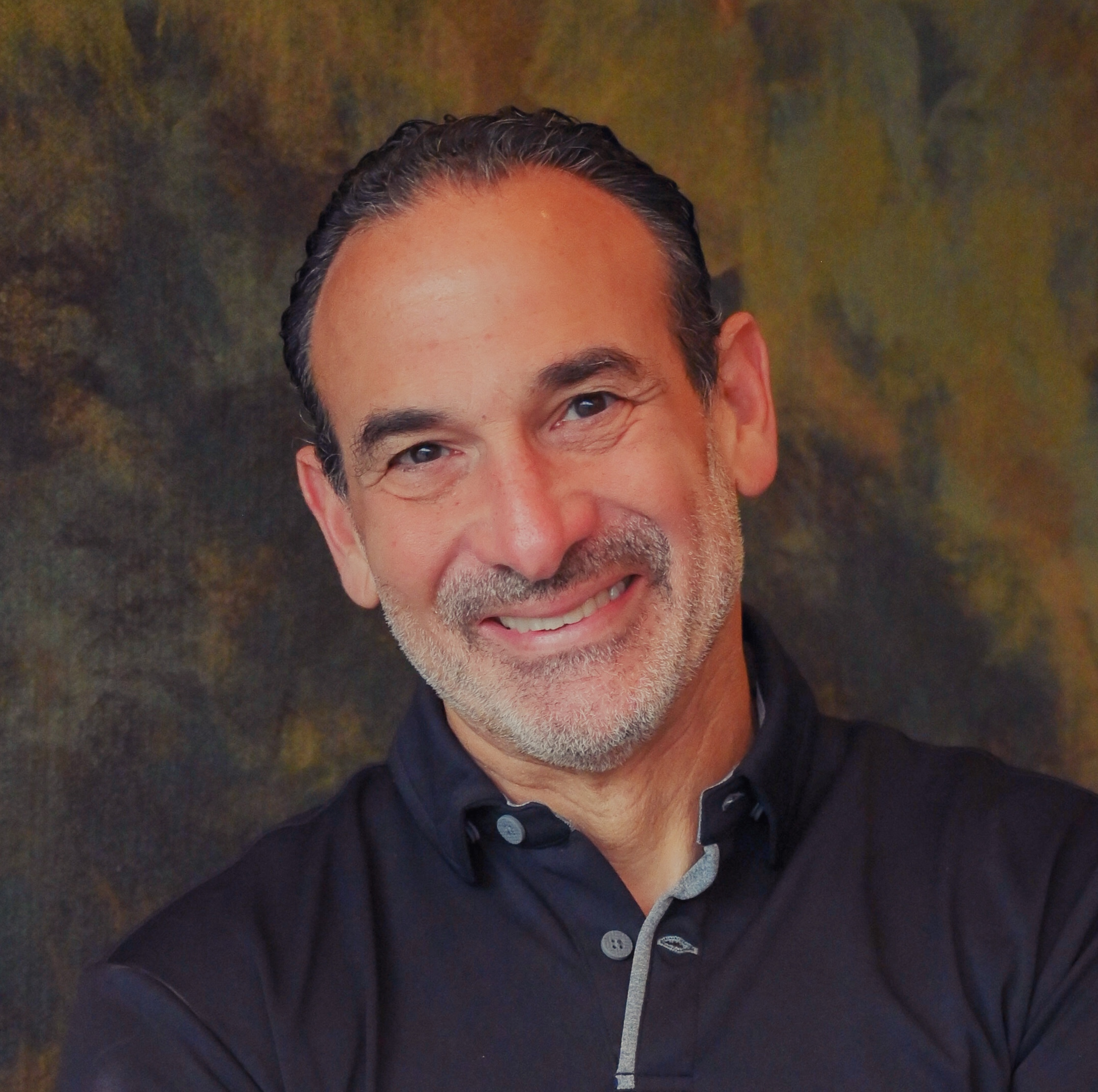RV (00:02):
I’m so honored to introduce you to someone who I have found to be a delightful human full of really deep wisdom and just someone who’s been a real joy to be around. We ended up meeting each other at this bestselling author meetup, just a private meetup of colleagues that happened just a couple months ago, and I’ve started following him more closely since then. And now I’m bringing him to you and you’re gonna love getting to meet him. So his name is Michael Bunge Stanier. And he is most probably most popular for his book called The Coaching Habit, which is probably the bestselling book on the topic of coaching this century. I followed his book long before I met him because here’s what’s very unusual about his book. It sells a lot every single week. , most books sell a lot at first, and then they kind of like trailed down, you know, from there.
RV (01:02):
Yeah. And this book has not done that for years. It has been. It’s just like super consistent every week in and week out. Michael also founded a Box of Crayons, which is a learning and development organization and company that’s trained thousands of managers to be more coach-like in organizations. So this is companies like Microsoft Te Gucci teaching their leaders how to become better coaches. And when I met him, I was just like, oh my gosh. We have to introduce you to our audience, both to hear the story of how you built your personal brand, but literally, like all of us are coaches in some form or fashion. So anyways, Michael, welcome to the show, buddy. Oh,
MBS (01:42):
Look, I’m super excited. That was an amazing gathering in Nashville, wasn’t it? There was so many impressive people there, . I was like, there’s so much to learn, and it’s such a supportive community. I mean, it’s a real insight around, part of the way you, you continue to elevate is you continue to hang out with people who are ambitious and doing smart things and, and are generous. And the the generosity in that room was really amazing.
RV (02:07):
Yeah. Yeah. I, I feel the same way. And I, you know, whenever I’m in a room like that with colleagues, I am you know, proud to be there, humbled to be there and, and, and then really blown away by a lot of the people because I’m, I’m a reader first. I’m a student first. I’m a fan first. Right. And so I’m, I’m fangirling over a lot of the, a lot of the people even these days. Like a lot of our clients, I’m like, you know, I’m, I’m glad that we’re helping them, but I’m also like, still so excited to like, get to know them and meet them. And so I think this topic of coaching Yeah. Is super relevant. And can you just like, talk us through the, the, the premise of the coaching habit and like that, not just the book, but the body of work and like what that’s all about?
MBS (02:57):
Yeah. You know, I I was really sure I was gonna be a coach early on. You know, it felt like one of those, the saying inspiration is when your past suddenly makes sense. When I discovered coaching, I was like, oh, look, my whole past aligns around that. When I was 17, I did crisis telephone counseling and helping kind of youth anxiety and youth suicide and stuff like that. And so I’ve been learning how to ask questions and stay curious and, you know, sink deeper into what was going on since I was 17. And I heard about coaching when I was working and living in London. And of course part of me is like, it’s a weird Californian thing. ’cause This is like in the 1990s before it really blew up . And part of me is like, intrigued and, and I’m in London where we’re, you know, skeptical about everything, but a part of me was intrigued.
MBS (03:44):
And then when I moved to the States and lived in Boston, I hired a coach and I started telling my clients, my consulting clients, I was coaching them, whether I didn’t know what that meant. And then when I moved to Toronto in 2001, I’m like, I’m gonna start a coaching practice. And I did my training and, and I found I didn’t love being a coach. Hmm. It was very confusing. I grew a practice, I had lots of people, I’m like, this isn’t quite right for me yet. But I’d been invited by a, a big multinational to help design a coaching training for them. And I designed other training on other topics before, and suddenly something clicked around this, which is, oh, I want to un weird coaching for busy managers and leaders, because coaching has this, it comes with baggage and there’s a lot of kinda woowoo ness around coaching.
MBS (04:38):
You know, it’s kind of like, oh, it’s mysterious, it’s touchy feely. Everybody’s wearing caf, dans and lighting incenses, . You know, there’s a kind of, there’s a, there’s a bunch of stuff that people are like a bit suspicious about it. And I’m like, I was really clear that I think coaching can be an amazing technology to unlock people’s greatness, help ’em have more impact in the world. I didn’t love how it was being taught in the, in the ways I’d seen it. And particularly I didn’t think it was being taught well in organizations where often life coach training was just brought in. And like, we’ll just tell the managers the same stuff. Yeah. So the origin of this was like, I want to un weird coaching for normal people. So even though, you know, I’m, I’m kind of well known, I guess in in coaching circles, the people I’m really trying to serve are people outside coaching circles, which are people like, I need, look, I’ve got a team. I’m trying to lead them. I’m tapped out in the leadership skills that I have at the moment. And I, I, I have a sense that I, you know, my organization’s telling me to coach them, and how do I do that? And I’m like, let me show you as best I can so that you can read the book or hear the book or whatever, and go, oh, if that’s coaching, I can do that. And that’s the impact I was really trying to have. Mm-Hmm. .
RV (05:57):
And I remember being in college, you know, when I heard the word coaching, I used to think of, you know, for me it was, it was athletic coaches. I did martial arts and I had basketball coach. Right. And I, I, I thought I thought of it very much as like instruction and teaching. And, you know, then I was in the world championship of public speaking and I had coaches that, you know, they were giving me feedback and they were critiquing. But then when I was, when I was in college, I took a class on coaching and I very vividly remember them saying, coaching is not teaching. It’s only listening. It’s only asking questions. And like, the foundational premise was that the, the client has all the answers. Yeah. And so it was like a very Socratic method of like, your job is to only ask questions. And so even to this day, I’m still a little unclear on like what the proper definition of coaching is. ’cause A lot of my clients call me a coach, but I teach them what to do.
New Speaker (07:02):
Like I tell them, you know, so I don’t know if that counts. I,
MBS (07:06):
I, well, I get, I think you can get really hung up on these kind of technical definitions of coaching. Sure. So I have a behaviorally based definition, which is simply this. Can you stay curious a little bit longer? Hmm. Can you rush to action and advice giving a little bit more slowly? Because I think coaching involves teaching. I think it is partly a, like I, look, I’ve got scars, I’ve got wisdom , I, I, I’ve got stuff. I can tell you this. You know, some of the answers are not waiting to be uncovered within because they’re technical stuff that you learn in a different place. And I’ve got that wisdom, and you don’t yet have that wisdom. So I think it’s ridiculous to say, oh, coaching, you can only ask a question. But equally, I think if you think coaching is just telling people what to do, you fundamentally misunderstood one of the powerful ways to help people learn.
MBS (07:56):
Mm-Hmm. . ’cause What you’re help, what you’re, the goal in coaching is to help people generate new insights about themselves and about the world. You can do that by asking questions. You can do that by offering up learning, teaching advice is to actually help them shift their behavior so they do something differently as a result of it. It’s helped them to notice the impact. So they get feedback from their new insight and their new behavior. And then it’s to help them then move to, now what’s the new insight? Noticing that. So insight, action impact. And that’s the cycle of coaching. And how you get there depends on the person, depends on the context. Depends on the moment.
RV (08:35):
Yeah. And you know, in inside that definition, and it’s like, I don’t, you know, like brand Mild’s group, I actually don’t define it as a coaching company, right? We are really a training company. We have curriculum, right? We’re putting people through processes exercises. Right. We’re certainly getting input, like to tailor it to what we’re doing doing, but it’s like, it’s not, and and to me that is very different from coaching of the idea of going ask questions to sort of help someone discover what Yeah. You know, their like I love the way that you said, I think the word that you, you said was it’s technical training. Yeah. Technical training is different from sort of a find the answer within type of a Yeah.
MBS (09:16):
Conversation. But there’s a, there’s a way that these two dance together. It’s not one or the other. I mean, if I was training you on, on your world championship speaking, you know, I, you could, you could give a talk and I could immediately jump in and go, right, Rory, let me, let me make some adjustments here. But it’s actually a more powerful lesson for me to go. So Rory, tell me before, I’ve got some ideas, but what do you think went well? What do you think your strength is? Where did you feel the weakness in, in the talk? What bit do you feel like you really need to focus on to kind of lift the level? And you figuring that stuff out is helpful for you. And it’s also then helpful for me to then go, right, let me take, I, I can figure out the advice that’s most useful for you.
MBS (09:59):
Like, even at the highest level of sport now, like the rugby world championships on rugby union. And if you, if you know it, you know, it’s a big thing. And if you know rugby union, you know that the New Zealand, all blacks are the team. They are the, they’re the most winningest team in sport. They have this unparalleled success record. They dominate this sport in a way that is incredible for coming from a tiny country. And the way these elite sports people are taught are part directed through questions. What are you noticing? What are you learning? What do you guys think we need to solve around here? And part technical intervention, which is like, here’s what we need to do differently around that. It’s both. And the bias that I’m looking to shift for people is start with curiosity and then know that teaching might be the thing that follows curiosity. ’cause That might be the most appropriate thing to do.
RV (10:55):
Mm-Hmm, . Yeah. And I think like you’re saying to the, to the context, I mean, there’s so much power in somebody realizing for themselves what, what, what the action is. I, you know, I also think about it in selling, you know when we teach like how to deal with objections, one of the things that we say is you are selling, if they’re talking, and that basically, it’s like, like the prospect. Your prospect only believes like 20% of what you say, but they believe a hundred percent of what you’re able to get them to say, .
MBS (11:30):
That’s great.
RV (11:31):
So if you, if you can ask the questions, if you can, if you can orchestrate the questions and engineer the questions in a way that the light bulb comes on for themselves as they’re talking, there’s, that’s like a, that’s a revelation that will be more influential than you just telling them what to, you know what to think. That’s
MBS (11:49):
Right. Because if you come in, if you lead with advice, and that’s what so many of us have kind of built in as our default, our default response. You know, somebody starts talking to you and after about 10 seconds, your advice monster comes up outta the dark and goes, oh, I’m gonna add some value to this conversation. Or just wait till they stop talking. ’cause I know what I wanna tell them. But if you, if you default to advice, the first thing you need to know is that the power in the relationship shifts. It’s like you go one up, they go one down. And when they’re one down, ’cause you’ve got the status, and they don’t, I know this answer. You don’t know the answer. People inherently resist advice sometimes even when they ask for it, they’re like, can you gimme some advice on that?
MBS (12:29):
Yeah. And yeah, , and I mean, just think of all the advice you’ve given and how little has been followed through on in your time. But if you can find a way for them to more specifically ask for it or figure some stuff out themselves, or for you to build on what they’ve already figured out, they’re just more likely to hear what you’ve got to say to them. So it’s not even, it, it’s like, it’s not even a, oh, I should always ask questions. It’s like, if I want my advice to land, leading with curiosity gives your actual advice a better chance of being more helpful and also acted upon. Mm-Hmm.
RV (13:02):
. Mm-Hmm. . Yep. It, it, it, there’s a part of it, like, especially I think when you’re managing quote unquote managing someone, right? I think it’s one thing if someone hires you to go, teach me a skill. Teach me, teach me Spanish. Right? Teach me how to do QuickBooks. Teach me, teach me how to paint. That’s very different from going, how do I manage my, my, my teammate to become a high performer? Or how do I have a conversation with my aunt, my aunt, aunt about how to change her life? Or how do I give advice to a friend who’s going through a tough time? And
MBS (13:43):
I think that’s true. But I’ll tell you this, Rory. You know, I, I’m, I am a teacher. Like I, you know, through my books and through my courses and the like, and something that, and knowing that there are coaches and teachers and, and people doing similar stuff who are building their own brand by building their own content one of my key design elements is what’s the least I can teach that would be the most useful. So part of that design philosophy is for me to not think that me just adding more value, more content, more information, more advice is actually helpful. Part of the discipline of being a great teacher is going, how do I strip it down to what’s essential? How do I give them the least of what I can do? And how do I create the most space for them to then interact with it, to play with it, to understand it, to deepen it? And one of the things that I see in less experienced teachers by teachers, you can be a facilitator or a coach or any other thing, is the sense of, I’ll just keep adding more content as a way of proving my worth. And the courage, the courageous act is to keep taking content out so that you shift you shift away to the audience’s interaction with your content. And it means you give up control, but you increase engagement and you increase learning.
RV (15:09):
Yeah. That reminds me of I’m pretty sure it’s Mark Twain who said that brevity is the essence of wisdom,
MBS (15:16):
Right? That’s right.
RV (15:19):
And it also takes, except
MBS (15:21):
He said it a little snappier than that. I’m kidding. As a .
RV (15:28):
But the, it, it also, it also, it takes more work to be able to say something concisely, but not to get away from your real point, which is to lead with, you know, to be curious, not necessarily to is So is being curious the same as just leading with questions?
MBS (15:46):
Well, I think, I think so. I mean, I think questions are the great, the great force of, of cur curiosity. So you know, it’s useful to understand that most of us have an advice monster, a driver to go look, the way I add value is I tell people stuff. And we have different things that, that advice monster feeds in us. Sometimes. It’s like, I like to just be the smart person, show my status, show that I have, prove that I’m adding value by the content I have. Sometimes it’s like, I like to be the person who rescues people. I like to save people. I like to be seen as a person who will protect everybody from everything and know everything. So nobody has to stress or worry. And sometimes it’s like, I just like being in control . And when I’m giving advice, I have the upper hand, I have control.
MBS (16:33):
But if you can understand that you’ve got a, a, a wiring and a bias to jumping in with advice, it’s deeply wired in your brain. Your brain loves certainty. And when you’re giving advice, even if it’s the wrong advice to solving the wrong problem, your brain is still going. But this feels quite good, . But when you ask a question, which your brain likes less, because it’s like when you ask a question, it’s a little more ambiguous for your brain. ’cause You’re like, is that a good question? Did they understand the question? Well, they have a good answer. What if they have a crazy answer that I don’t even understand? There’s a little moment of uncertainty, but then you shift the focus onto the person, you give them your full attention, it’s about them rather than about your status. And that’s when greatness gets unlocked.
RV (17:20):
And so is the, is the primary, you know, benefit of that, you’re saying to just that they’re more, they’re more likely to make a change in their life if they come to the realization themself? Is that the premise?
MBS (17:33):
Well, there’s a couple of premise behind it. The first is, if you leap in with advice too soon, quite often you’re not solving the real problem. You know, the one of the powerful questions in the coaching habit book is what’s the real challenge here for you? And the inside is the first challenge that shows up is not the real challenge. And when your advice monster is loose, you’re like, oh, that was the first challenge, and I’ve given you some advice that my work here is done. But your work here isn’t done because you’ve just offered up not very good advice to solve the wrong problem. So there’s, if you can become a, if you’re in a, in a leadership role, if you can become the leader who is known for figuring out what the real problem is, rather than having the fast answer, you become a much more revered, much more valuable person to the people around you.
MBS (18:23):
Because everybody’s got answers. Very few people have the discipline to say, what’s the real challenge here? What’s the hard thing? What’s the most important thing for us to solve? So part of it is like, can you figure out what the real problem is that that alone is, is gold dust? Secondly, it is absolutely true that if people figure out their own answers, they’re more likely to act on their own answers. So if you’d like people to do something differently, the more they can figure this stuff out themselves, the more they can make their own neural connections, you help them grow in competence and confidence and autonomy and self-sufficiency and all of that is good for them. But most of that can be really good for you as well, because you become more effective as a coach or as a manager or as a leader, because your people are like, I’m smarter. I’m more confident, , I’m better able to figure this stuff out myself. I mean, now less dependent on you as a leader, which means that you as a leader or whatever role you’re in, you can just get on with your own stuff.
RV (19:26):
So connecting this back to like, so I like, I I love this I love the application of this too, being a leader and a manager in Yeah. An organization. It, it, there’s also an element of this that to me feels like the more fam the the more familiar someone is with you, like the more, the closer you are in proximity, the more this feels important. Yeah. where it’s, it’s like your kids, right? Like they won’t, they don’t listen to you when you tell ’em to do stuff. They listen to somebody else. Yeah. Because you’re in such close proximity and, and the people you see every day that you’re leading on your team, it’s like eventually they just get tired of hearing you say the same thing over and over again. You know, when you look at it as, as being a coach that people hire, right? Mm-Hmm. And you go, they, they hire you. I think you, you, when you, you get into like the dance you’re talking about, about being curious, asking questions, but also typ, you know, I guess sometimes it’s like if, like for life coaching, I process this very much as like life, like a life coaching conversation. Yeah. If somebody is struggling, they don’t know why they feel blocked. They, they have low confidence. You know, a lot, lot of those are sort of these deep rooted issues.
RV (20:51):
If you look at like a different type of, you know, I’m a health coach or you know, something like that. Or like, I’m, I’m, I’m a, I’m an accountant who coaches people on their, on their, on their finances. Right?
MBS (21:07):
Certainly
RV (21:07):
There’s always that part of it. Like, what’s the real driving? How do you get them to change their behavior? Yeah. Like you’re saying it’s a behavioral model. This, this is like the, the getting them to modify the behavior is the part of it. Teaching them the what to do is a, is also part of it. So anyways, just any any tips on finding that balance, finding that dance, if you’re a hired coach Yeah. In, in those different kind of types of roles.
MBS (21:35):
So the starting point for me is when you are a coach in that role and you’re hiring your clients and you’re trying to figure out who your ideal clients are. Yeah. ’cause That’s part of the quest for success, is who do I best serve? Sure. you have a conversation with them at the start going, what does good coaching look like or sound like to you? let’s, let me tell you what it looks like. And it sounds like to me, and you actually have this conversation going, how do we talk about how we work together before we plunge into the work? Because, you know, if you’re a health coach, somebody shows up at your door and you’re like, right, , I’m go, I’ve got so much to tell you. I’ve got stuff about weight management. I’ve got stuff about diabetes. I’ve got stuff about exercise.
MBS (22:20):
I’ve got stuff about blood pressure. My, my head is filled with amazing content. And you’re like, I, and I’m so keen to prove my worth to you and add value because I’m, I want, I want you as a client and I’m driven by purpose around helping the world be healthier. So you’ve got all this motivation to get into the work, but the thing to do is, before you get into that work, ’cause it’s, it’s calling you, but it can wait a moment. If you look at your client in the eye and go, look, when you’ve worked with people before around your health and it’s been really helpful for you, what happened? What did they do? What did you do? And what can we learn from that? And now let me tell you my, when I’ve worked with people and I’ve coached them around health and it’s been really successful, let me tell you what happened, what they did, and what I did.
MBS (23:07):
And you actually have a conversation where you actually figure out what’s the best expression of our working relationship together. And a couple of things are gonna happen. One is you get to start educating your client around, this is how I work. Secondly is you’re like, you get to fire your client. ’cause You’re like, it seems like we don’t have a good fit here, even though it looked like we did on content because you got this health issue. And I know stuff about that health issue, the way we work is not compatible. And secondly, you go, right. So I think I understand what the balance is between how much curiosity and how much advice that that is best to strike in, in this circumstance. So there’s no generic answer to this, Rory, other than to say there’s a place for curiosity, there’s a place for advice on balance lead with curiosity. Because that will mean that when your advice shows up, it’s better directed, it’s more specific and it’s more likely to be solving the right, the, the real issue. But primarily it’s like whenever you are working with anybody, sit down and go, how will we work together?
RV (24:16):
Mm-Hmm. . So I wanna come back to the management like inside of a company like organization. Like a lot of the work you do with companies for a second. Yeah. You know, and I’m thinking about our team at Brand Builders Group and like, you know, we’ve got, we’re growing so fast that we have basically like a, a, a mid, a mid-tier level of management that’s developing. Mm-Hmm. And some of those are people who started with us and, and you know, they’re fairly young, but they’ve done so good and now they’re getting promoted. And so they’re in this new world of like, how do I manage and, and, and lead other people? You said something earlier in our chat that basically a lot of times people in corporate, you know, they have like a stigma about coaching. Like, oh, that’s woo woo or whatever. But then you show them this other thing and they realize, oh no, if that’s what you mean, I could do that. Yeah.
MBS (25:04):
What,
RV (25:04):
What is that switch there? What’s, what’s the thing, what’s the thing that they’re thinking now that gives them the stigma about coaching and what’s, what’s the way that they start thinking about it once they understand the coaching habit? Yeah.
MBS (25:17):
You know, in general there are five reasons why people resist coaching, certainly in organizations. So let me walk through the five points of resistance and offer a a counterpoint to those points. So the, the first is people go, I just don’t have time for this stuff. . I mean, I’d love to be coaching my people, but Rory’s a hard task master. I’ve got too much on my plate. My calendar’s already super busy. And you know, I know coaching is like this, what is it, 45 minute or one hour conversation. I can’t, I just, I mean, I’ve got a life. I can’t do that with my people. And I’m like, great. I agree. If you can’t coach in 10 minutes or less, you don’t have time to coach. So it’s like resetting this expectation around what coaching is. It can be a really fast conversation.
MBS (26:06):
In fact, at its best it’s five minutes or it’s 10 minutes. Hmm. And then the second point of resistance people go is, Michael still don’t have time to coach. Even if I could coach in five minutes or less , like my world is full and the gaps I’ve got in my calendar are for going to the bathroom, having lunch and doing all the other stuff that is urgent and important on, on my plate around this. I can’t add coaching to what’s expected of me in my company. And I’m like, great, if we’re trying to add coaching to what you’re already doing, we, we, we’ve lost. It’s just pouring water into a full glass. This is about transforming what you currently do so that you can be more coach-like in the way that you interact in your current interactions on email, in person, over Zoom, whatever it might be.
MBS (26:54):
It’s not adding it. You are not going, I need to now add coaching to everything I’m already doing. It’s like, be more coach-like in your current interactions. Then the third point of resistance people go is like, look, I don’t, look, I don’t wanna be a coach . I didn’t sign up to brand builders group to be a coach. I signed up to help people figure out what their essence was in the world, or help them drive their marketing or help understand their speaking position or help build their speaking business. You know, I’m a marketeer or I’m a sales person, or I’m a brand builder. I’ve got technical expertise that I’m working on. Don’t make me be a coach. And I’m like, great, I don’t want you to be a coach. There are lots of coaches who want to be coaches, but I want you to be coach-Like, it’s not a role, it’s a leadership behavior.
MBS (27:41):
We’re not, we’re not making you put on an uncomfortable suit, which is like, this is just an essential way to lead, be coach, like, love that. And then people go, this is, this is number four. Which is like, but I honestly, I’m not even sure what coaching is because like you, it’s like, is it sport? Is it executive? Is it life? Is it health? Is it a DHD? Is it, you know, there’s a thousand variations of coaching and I’m not sure what any of them are. And that’s that definition we’ve talked about. Really behavioral, can you just stay curious a little bit longer? Can you rush to action and advice giving a little bit more slowly so it’s got no woo woo or kind of outcome thing. It’s just a process, staying curious longer. And then the fifth and final point of resistance, Rory, is people going, okay, but what’s in it for me?
MBS (28:32):
Like, I can see why Rory wants me to be a coach, because that’s gonna help the people in, in the organization thrive and do their best and keep up with the, the growth we’re having as a business. And I can understand why the people who I’m leading would love me to be a coach because it’s a great leadership skill and I feel seen and I feel heard and I feel encouraged and I’d be become more competent and confident and capable and self-sufficient. But, you know, you’re asking me to shift my behavior. I’m pretty good at giving advice. what’s in it for me. And for me, I would say it helps you essentially work less hard and have more impact. So whether, you know, Rory, people are wired one of two ways. They either wanna move away from pain or they wanna move towards a reward. So if you’re a move towards a reward person, it’s like this allows you to do more great work, work that has more meaning, work that has more impact and those around you to do the same. But you, you get to do more great work. And if you wanna move away from pain, it’s like, this has means that my team is less dependent on me. It means that I’m less overwhelmed and it means that I’m more connected to the work that really matters. So
RV (29:45):
That, that one’s the one that, that jumps out to me. ’cause A lot of ways this is basically like, not ba but part of what this feels like to me is it’s the difference between fishing for a man and teaching a man to fish.
MBS (30:00):
Right?
RV (30:00):
Right. Like, if, if, if, if I train my team that I have the answers, I tell them what to do, I solve the problems, then they constantly come to me for every one of those things. The,
MBS (30:12):
The more you give them the answers, the more they come to you for the answers. The more they come to you for the answers, the more you give them the answers. And like before you know it. And this is coming from good intentions, like it’s exhausting. And you’ve built a team of vampires who are just draining your life. Like what? You guys are smart and capable and talented. That’s why I hired you. What has happened? And you’ve just built this system where they’re like, they’re like, I don’t feel I can come up with my own stuff. ’cause You wanna gimme the answer the whole time. So it’s a real shift in identity sometimes.
RV (30:44):
Yeah. I mean, one of the other things that you, I don’t think has come up in this conversation, but one of the other benefits of doing it this way is you actually learn a ton. Like you actually, I I’m shocked sometimes at the creative stuff that like a team or a client will come up with where I’m like, I never would’ve thought of that. Right. And by not launching into just like giving them the recipe, you, you have a chance to be like, there’s this beautiful discoveries that, that come out of it.
MBS (31:17):
Well, you haven’t hired the people you’ve hired to just come up with ideas as good as you can come up with. ’cause You’re like, I can already do that. I’m hiring you to have ideas better than I can do and take this business further than I can think of. You want their full brilliance. And this, this commitment to curiosity allows people to say, oh, I’m going to bring my best. You’ve given me the insight and the courage and the commitment to kind of like, try and be braver, be bolder, have better ideas.
RV (31:48):
Mm-Hmm. . Mm-Hmm. . Yeah. Well I I, I wanna, I wanna ask you one other thing before I do that. Where should people go, Michael, just to like, connect with you? I know that we’ll, we’ll put links to the Coaching Habit book and, and your other books and stuff too. But where should people go if they wanna link up with you? Yeah,
MBS (32:06):
The main website is mbs.works and that’s a hub for all the books, the coaching habit, the advice trap, the new one is called How to Work With Almost Anyone. And all of those books have, you know, free resources and stuff. So whether you want to download the questions from the coaching Habit book or see me hold a Keystone conversation from how to work with almost anyone, all of that’s accessible and available for people. Mm-Hmm.
RV (32:27):
. And so if, if, if somebody is kind of saying, all right, I, I want, I’m willing to give this a shot, whether, you know, it’s with a paying client or someone they’re managing or even a family or a, you know, a member or a friend. What’s, what’s kind of the first thing? I mean, I know the, the message here is just stay curious longer and you, you know any, any other kind of tips in terms of the first thing they should do or the, to focus on or like to shift in order to help them do that? Yeah,
MBS (32:59):
There’s a couple of places you might wanna start. One, one really interesting place to start is just start noticing how much advice you give during the day. how quick you are to jump in, often interrupt kind of how quickly you stop listening to the other person. ’cause The, the, the answer is already in your head. You’re like, we’ve only just met, we’ve been talking for 20 seconds. You’re telling me a complex situation about people I don’t know in a culture, I don’t know with a team. I don’t know, but I think I’ve already got the answer for you. So just start noticing how quickly you default to that. That’s one option. If you wanna get more specific. You know, staying curious longer is a really great overall mantra, but it’s unlikely to shift your behavior. So what I would do is get specific, this is just good habit building 1 0 1, which is like, who’s the person with whom you’d like to build a coaching habit and what’s the context in which you might be interacting with that person?
MBS (33:56):
And if you could ask, pick just one question to ask that person might be, what’s the real challenge here for you? It might be, and what else, you know, the best coaching question in the world. There’s always a place for, and what else it might be. What was most useful or valuable for you at the end of the meeting? You could just pick one question. What question would it be? You know, people abandon, have a building ’cause they try and take on too much at once. The smaller you can make it, the more likely it is that you’re gonna get that first rep, rep in. And once you get the first rep in, the second rep’s easier. So pick something specific, pick one question, one person, one context, and then commit to actually following through on that.
RV (34:39):
That’s great, man. Well, I I, I love it. I mean there, I, there’s no doubt that this can, if nothing else, this can improve our relationships with one another dramatically. It’s like God gave you two ears and one mouth for a reason. , that’s right. And is, you know, be be it’s kind of the like slow to speak, quick to listen, kind of a kind of a thought. So I really, I really appreciate this and love it. Thanks so much for being a part of this and sharing your wisdom and, and we’re cheering you on, man.
MBS (35:09):
Yeah. Thank you Rory. It’s been great.







